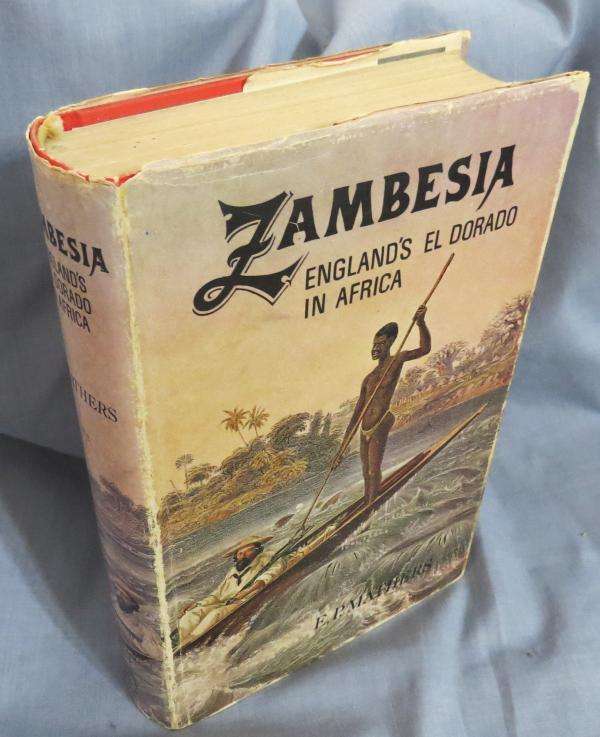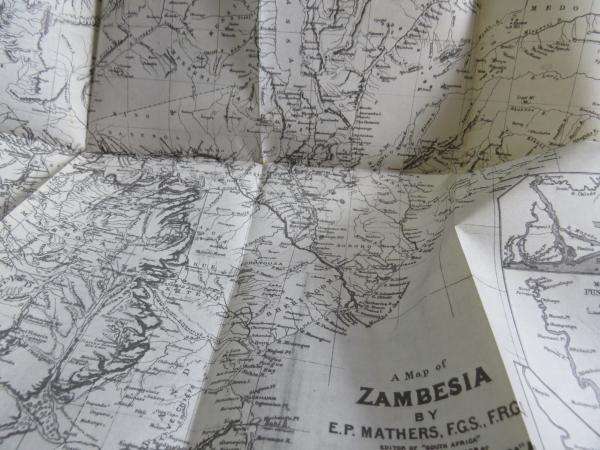







Zambesia: England’s El Dorado in Africa - E. P. Mathers
Check my rate
| Main centres: | 1-3 business days |
| Regional areas: | 3-4 business days |
| Remote areas: | 3-5 business days |








| Main centres: | 1-3 business days |
| Regional areas: | 3-4 business days |
| Remote areas: | 3-5 business days |
Condition: Good. Light edge wear on DJ tidy. Light foxing on end pages, otherwise clean content with tight binding. Big foldout map present and undamaged.
Format: Hardcover with DJ
Published: 1977 (Books of Rhodesia)
Pages: 480
ISBN: 0869201638
AS a piece of sophisticated journalism Zambesia: Englands El Dorado in Africa is a tour de force being a document of what British and South African public opinion believed and hoped for Zambesia (Rhodesia) in the heady days of occupation prior to 1893.
The unbounded optimism of the day suffuses the work which did much to encourage investment in and support for the British South Africa Company, and early gold-mining ventures in southern Africa. The weekly journal, South Africa, founded by the author, E. P. Mathers, in 1889, was a highly successful paper with the largest circulation of any in South Africa. Its objects were to champion British interests in southern Africa, to inform European investors about the gold-fields and other investment openings, and to advise on business opportunities in that expanding market. With these objects in mind, and his belief in the existence of rich gold deposits north of the Limpopo, Mathers became a great supporter of Rhodes and his Company.
In March 1891 he published a 146-page special issue of South Africa, entitled Zambesia, describing the history of the region, its gold and its peoples, and the development of the Company. So popular was this issue that Mathers then rewrote parts of it, added a new chapter, and re-issued it as the book now reprinted.
Its appearance then was most timely and it went through several editions. The 1893 war with Lobengula had attracted much attention to Matabeleland, and the gigantic undertaking of Rhodes was looked on, by a large portion of the British Empire, as the most fascinating and romantic episode of the 19th century.
The part of the book dealing with the concessions and early history of the Company are especially valuable, coming near to being primary source material. Although this is a facsimile reproduction a number of poor quality pictures have been replaced; regrettably, it was not possible to improve upon the indifferent standard of the original typesetting. The reprint carries an authoritative new Foreword contributed by Professor Roberts of the University of Rhodesia.